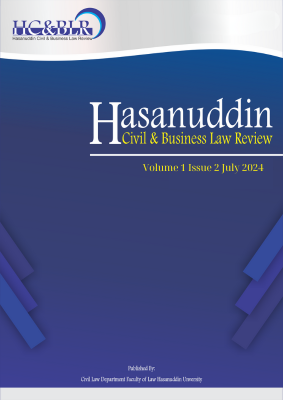Tokenized Creativity: Navigating the Legal Terrain of NFTs and Intellectual Property
Keywords:
Blockchain; Intellectual Property Rights; NFTAbstract
Technological advancements in the fourth industrial revolution have shifted creative works from traditional to digital formats, with innovations like IoT, AI, and Blockchain transforming industries, including digital art. Non-Fungible Tokens (NFTs) have emerged as a revolutionary method for verifying ownership and protecting digital assets like artworks, music, and videos using blockchain technology. This study explores the characteristics and legal protections of NFTs, emphasizing their potential to safeguard intellectual property rights and facilitate online trading of digital assets. Despite NFTs' promise of secure ownership records, challenges such as counterfeiting, copyright infringement, and regulatory inadequacies persist, particularly in Indonesia, where current regulations, including the Copyright Law, are insufficient to address NFT complexities. The decentralized nature of blockchain further complicates enforcing intellectual property rights across diverse jurisdictions. Using a normative qualitative methodology, this study analyzes case studies and recent legal advancements related to blockchain technology, highlighting the need for adaptable legal frameworks to manage digital artwork in the NFT ecosystem. Innovative solutions like open copyright or open licensing principles are recommended to enhance security, authenticity, and collaboration in digital art. In conclusion, while NFTs offer significant opportunities for intellectual property rights transformation and monetization, addressing these challenges is crucial to maximize their benefits in the evolving digital landscape.
Downloads
Published
How to Cite
Issue
Section
License
Copyright (c) 2024 Hasanuddin Civil and Bussiness Law Review

This work is licensed under a Creative Commons Attribution 4.0 International License.
Hasanuddin Civil and Business Law Review © 2024 by Department of Civil Law, Faculty of Law Hasanuddin University is licensed under Attribution 4.0 International

